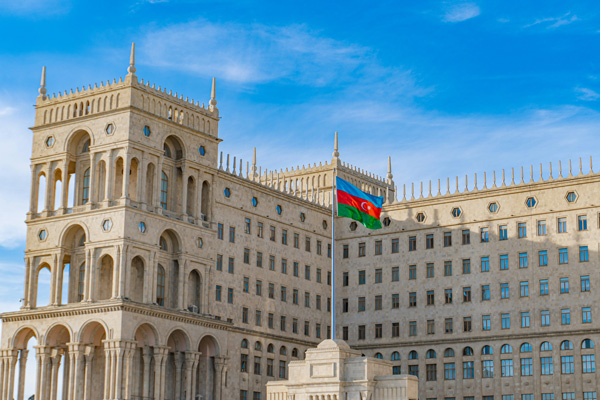Tension escalates between Russia and Azerbaijan to an unprecedented degree

[Image from Unsplash]
Amidst the escalating tension between Russia and Azerbaijan, the bilateral relationship is confronting a most severe post-Soviet diplomatic crisis recently.
The roots of this friction lie in the long-standing Nagorno-Karabakh dispute between Armenia and Azerbaijan, where Russia aided Armenia in preventing Azerbaijani annexation of the Armenian enclave in the region.
Despite the deployment of Russian peacekeepers, Azerbaijan launched a surprise attack on Nagorno-Karabakh in 2023 and regained the full control that the Azerbaijan Soviet Socialist Republic had exerted until the dissolution of the USSR.
Nevertheless, the tension between the two nations had not reached their current intensity until the tragic shootdown of Azerbaijan Airlines Flight 8243 by Russian air defence forces.
On December 25th, 2024, Russian air defence forces shot down the Azerbaijani plane traveling from Azerbaijan’s capital, Baku, to Grozny in Chechnya, Russia, apparently by mistake; the plane landed in western Kazakhstan, resulting in the deaths of 38 out of 67 passengers.
Russian President Putin issued a personal apology to Azerbaijani President Aliyev for the “tragic incident occurring in the Russian airspace.”
On the other hand, President Putin stopped short of accepting direct Russian responsibility, which President Aliyev criticized as “hushing up” the incident.
Following the dispute, the diplomatic confrontation between Russia and Azerbaijan became apparent, notably with President Aliyev’s decision to decline attending the Victory Day military parade in Moscow in May 2025.
The relationship between the two countries deteriorated further following a gruesome incident at Yekaterinburg.
On June 27th, Russian special police raided a group of Azerbaijanis suspected of involvement in a murder in the early 2000s, involving brutal tactics including beatings and electric shocks; two Azerbaijanis, Ziyaddin and Huseyn Safarov, were killed extrajudicially; several others were injured, and nine were detained.
Russian authorities delayed the disclosure of the deaths and deflected responsibility by attributing one death to sudden heart failure and opening an investigation for another.
The Azerbaijani government criticized the incident as “ethnically biased extrajudicial killing,” while summoning the Russian ambassador to demand a transparent examination.
The fierce response from Azerbaijan continued by cancelling the planned visit of Russian Deputy Prime Minister Alexei Overchuk to Baku, inter-parliamentary meetings in Moscow, and Russian cultural events within Azerbaijan.
In retaliation for the Russian raid, Azerbaijani authorities invaded the Baku office of Russian media Sputnik on June 30th and detained seven employees, including the chief editor and head of the editorial board.
Azerbaijani media press reported that detained employees were Russian Federal Security Service (FSB) agents, with the court charging them for fraud, illegal business, and money laundering.
Azerbaijani police further arrested eight Russian IT experts and other professionals, accusing them of drug trafficking and cybercrime, igniting public outrage in Russia.
The escalating hostilities between the two parties signal another diplomatic shift – the solidarity between Azerbaijan and Ukraine.
This May, Ukrainian Foreign Minister Andrii Sybiha paid an unannounced visit to Baku, where he received the Azerbaijani support for “Ukraine’s territorial integrity and sovereignty” from President Aliyev.
President Aliyev likewise noted that “Azerbaijan will continue to provide humanitarian aid to Ukraine.”
The diplomatic alignment continued after the deaths of Azerbaijanis at Yekaterinburg, with Ukrainian President Volodymyr Zelensky expressing condolences to President Aliyev for the tragedy via a call.
In response, the Kremlin denounced the call as an “attempt to unbalance Russia-Azerbaijan relations and provoke tension.”
As the rift between Russia and Azerbaijan widens, observers are closely monitoring broader implications for Russian foreign policy and the ongoing deadlock in the Ukraine.

- Deric Choi / Grade 11
- The Hill School

![THE HERALD STUDENT REPORTERS [US]](/assets/images/logo_student_us.png)
![THE HERALD STUDENT REPORTERS [Canada]](/assets/images/logo_student_ca.png)
